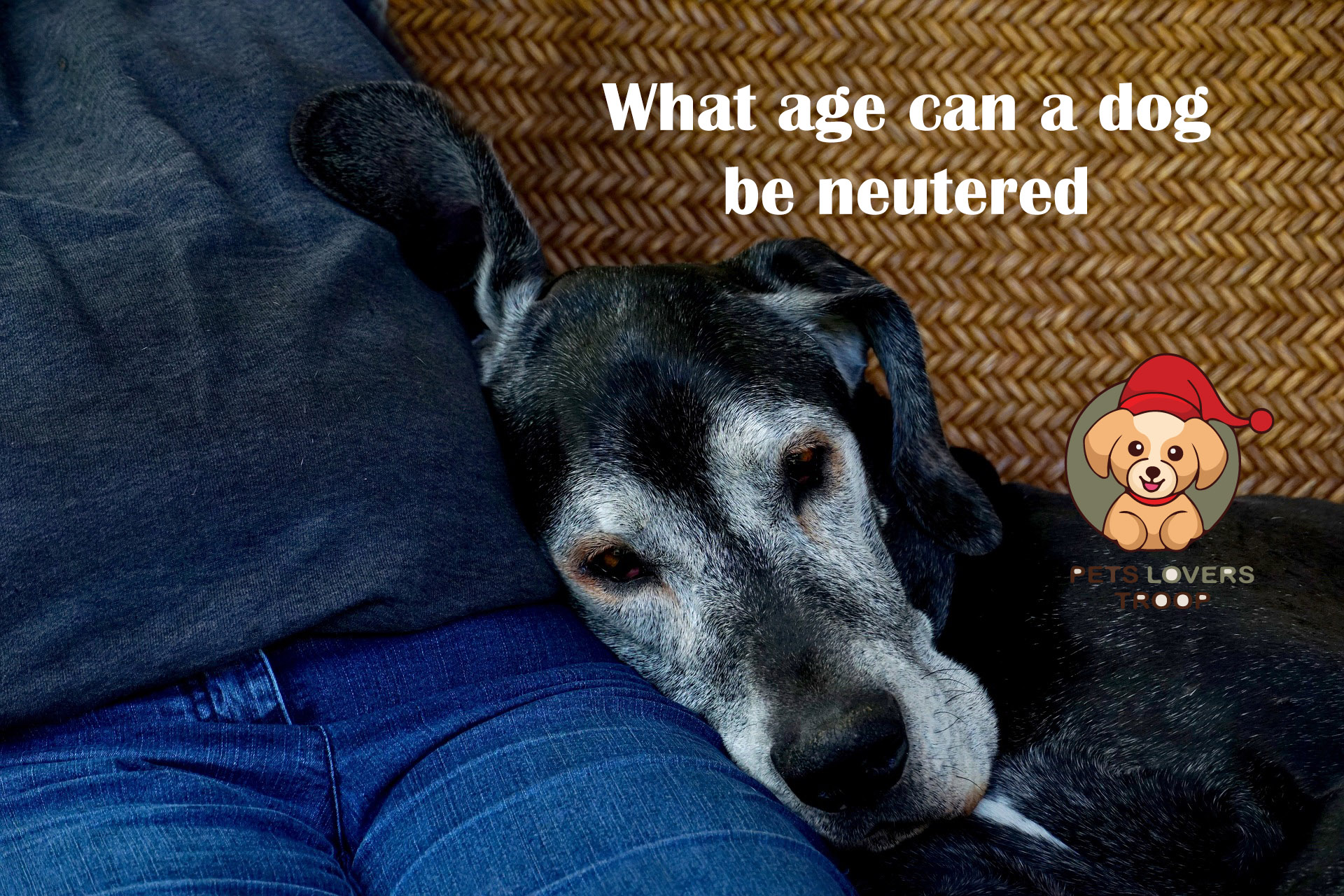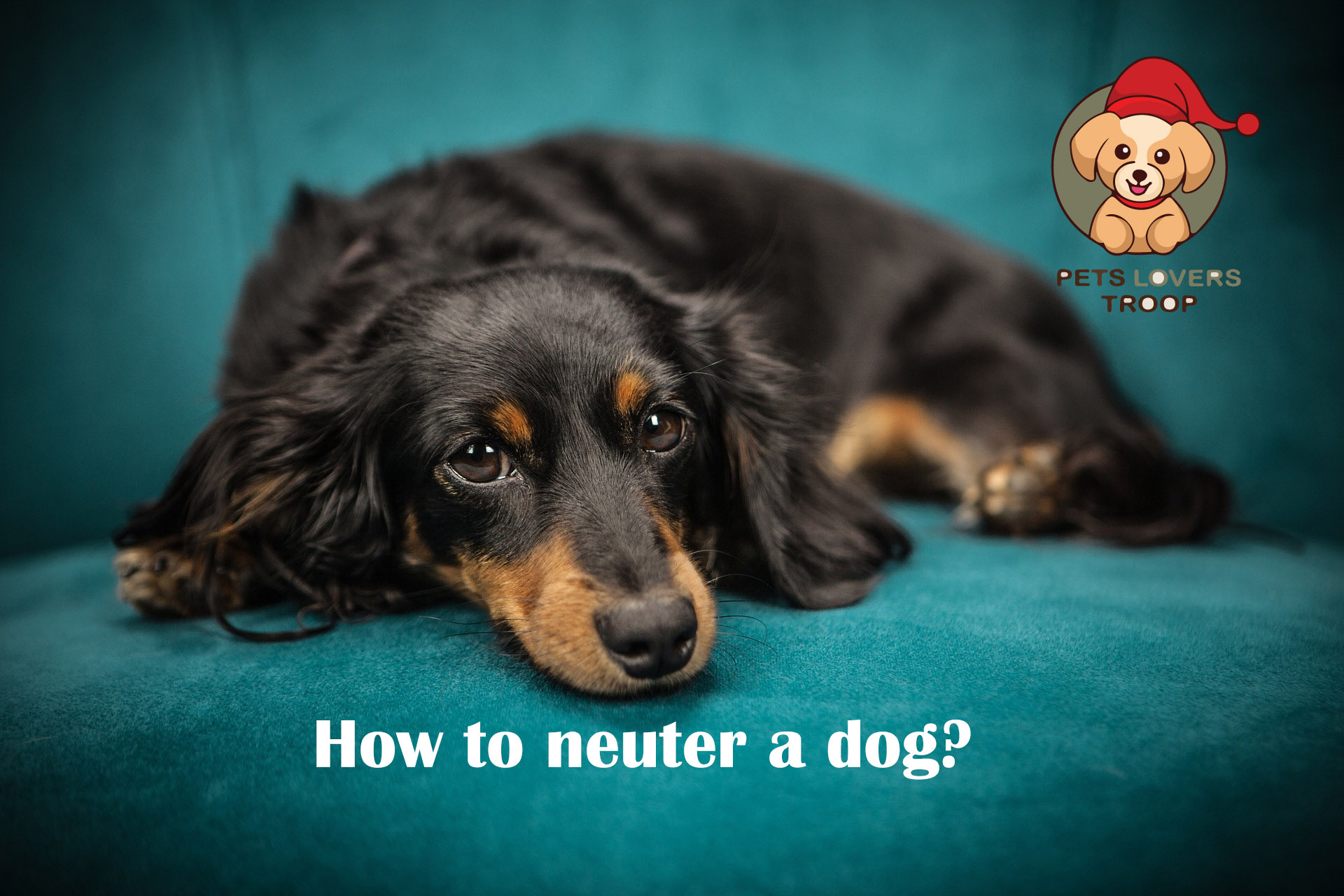As a pet owner, it is your prime responsibility to make wise decisions for your furry friends’ health and future. Dogs are the most loyal and faithful companions who can go to any extent to protect their owner and territory. They can read your emotions and know when people are lying. Also, different research studies highlight that dogs are great stress-busters at work- and can help employees feel happier, less stressed out about work responsibilities, and communicate well with their fellow workers.
As a pet owner, you should always be aware of routine medical check-ups, timely vaccinations, and scheduling dental cleanings for your dog. However, add one more thing to the list, particularly before they turn one: Dog neutering surgery.
Many pet owners are hesitant to have their dogs neutered and lack the necessary information about the neutering process and its aftermath. Your vet is your best friend when it comes to acquiring authentic details on the optimal time for neutering your dog and the proper ways to look after them post-surgery. If you plan to neuter your dog, we have compiled all the vital information to help you better understand the neutering process from start to end.
What is neutering?
Neutering, also known as castration, is a surgery used to remove a male dog’s testicles. This procedure is usually performed to control the pet population and to diminish aggressive behavioral traits quite common among male dogs, controlling their urge to mark territory, roam freely, and fight with peers.
Research suggests that dog neutering surgery lowers the chances of specific health issues such as testicular cancer, prostatic hypertrophy, and perianal tumors. After this surgical procedure, dogs typically require rest and recovery, as it may temporarily decrease their energy levels. However, most dogs return to their daily routine and tend to live a longer, healthier, and happier life due to this procedure.

What age can a dog be neutered?
Pet owners often need clarification about the right age to neuter their dogs. Keep in mind that the right age for performing a dog neutering surgery varies, depending on the size and breed of the dog. However, most dogs get neutered between five and nine months. Smaller dog breeds can be neutered as early as five months, while larger dog breeds are usually neutered close to nine months’ mark.
According to American Veterinary Medical Association (AVMA), dog neutering surgery must be performed before your pet reaches sexual maturity, typically between the five and nine months’ mark. Surgery performed at the right age will help the dog to recover quicker, lowering the risk of health complications.
Always remember, that your vet is the right person to determine the most suitable age for neutering your dog and for that they usually consider its overall size, breed, and health condition.

Can we neuter an older dog?
Yes, you can neuter an older dog, as it has countless benefits. Neutering an older dog lowers the chances of life-taking health risks such as testicular cancer, prostate cancer, and certain types of hernias. The neutering process can also be a wise decision to control pet overpopulation, reduce aggressive behavior in your mature dogs and control the spread of sexually transmitted diseases, such as canine gonorrhea and canine herpesvirus.
Read More: Neutering a Dog: Everything You Need to Know
That being said, there are specific side effects if you consider neutering your older dog. Firstly, it will be difficult for him to recover after the surgery, which may result in some additional health concerns. Also, neutering an older dog may not necessarily resolve its aggressive behavior issues. However, before neutering an older dog, please consult your vet to determine what would be the best course of action, considering his age, size, and overall health.
Benefits of neutering your dog
Most veterinarians encourage pet owners to get their dogs neutered at an early age, as it has countless health benefits, especially if you are planning to keep your dog as a pet and do not want them to breed.
Here are some benefits of neutering your dog:
Helps in population control
Dog neutering surgery is the best way to control pet overpopulation, reducing the added strain on animal shelters that are mainly responsible for rearing stray dogs. Pet overpopulation is a pressing issue, as over 6.5 million dogs end up in animal shelters annually, so you must play your part by neutering your dog at the right time.
Lowers health risks
Research indicates that dog neutering surgery lowers the risk of infectious diseases such as testicular cancer, prostate cancer, and certain hernias. Also, a dog neutering surgery increases your fluffy friend’s average age span, who lives a happier and healthier life.

Reduces sexually transmitted diseases
Female dogs are only receptive to mating when they are in heat. However, male dogs are capable of breeding all year round. This means your dog can impregnate as many female dogs as he wants to, adding to the existing number of dogs in animal shelters. Also, neutered dogs are less likely to transmit sexual diseases in female dogs, including canine gonorrhea and canine herpesvirus.
Reduces aggressive behavioral traits
A dog neutering surgery decreases the male dog’s testosterone levels, ultimately diminishing aggressive behavioral traits. It calms them, reducing the urge to territorial marking, dominance-related aggression, and roaming.
Improves behavior
Neutering a dog improves its overall behavior, making it easier for you to train and manage them. They prefer staying indoors rather than roaming in the neighborhood, decreasing the risk of traffic accidents and lost dogs.
Please remember that you must consult a veterinarian and consider all the potential benefits and risks before neutering your dog, as it can cause some downsides, such as decreased energy levels and weight gain.
Benefits of not neutering your dog
For some pet owners, the behavioral side effects of neutering can be too much to handle. Here are some of the benefits of not neutering your dog:
Preserves their natural behavior
Dog neutering surgery changes the dog’s natural behaviors and instincts, such as territory marking and mating with female dogs. However, you can preserve their natural behavior tendencies by not neutering your dog.
Increases production of the hormone
Neutering your dog reduces the production of hormones in your dog, which can drastically impact his overall health. However, if you decide not to neuter your dog, he can continue to produce hormones and mate freely with the female to breed.
Boosts metabolism
The neutering process decreases the dogs’ metabolism, resulting in lower energy levels and obesity. According to a 2019 study, neutering dogs of a specific breed, such as a golden retriever, can lead to obesity, even if they are neutered at the tender of 6 months.
Improves physical wellbeing
Not neutering a dog can boost its physical health, allowing them to enjoy its life to the fullest. Neutering slows physical activities and energy levels, ultimately making them less athletic and lively. When your dog is not exercising or engaging in any physical activity, even standard feeding patterns can lead to obesity.
Better protection for the owner
Dogs are known for protecting their master as well as their territory. However, neutering dogs can affect their natural instincts to protect their master and home. So, if you want to keep this protection instinct intact, stay away from the dog neutering surgery at all costs.
Preserves the dog’s breed
A dog neutering surgery eliminates the chances of a male dog to mate with their female counterparts. However, by not neutering your dog, you can preserve its breed from becoming extinct- allowing them to parent multiple pups.
Health hazards
Neutering your dog before the right age can expose them to certain health risks, such as orthopedic injuries. According to a 2019 study, neutering certain breeds before six months can lead to a higher risk of knee injuries, knee ligament rupture, and osteoarthritis.

How to neuter a dog?
This is one of the most asked question: How do dogs get neutered, and what is the overall neutering process? As mentioned earlier, dog neutering surgery is a surgical procedure to remove a male dog’s testicles. The procedure usually takes around 30 to 60 minutes, and is performed under general anesthesia.
Even though dog neutering surgery is not lethal, every surgical procedure has its own associated risks. From the night before the surgery till the next morning, ensure that you strictly follow the instructions of your vet related to withholding water and food. On the decided day, drop your dog at the vet’s clinic so that they can perform the required pre-surgery tests to eliminate risk factors. However, if the tests were already completed, you need not worry.

Dog neutering surgery is not time-consuming; hence, you can take your dog home on the same day. However, the doctor may ask you to observe your dog’s behavior and suggest a check-up date to ensure that your dog is recovering well. Keep a tight check on your dog, as anesthesia may affect their body and behavior.
The dog neutering surgery usually involves the following steps:
Pre-operative preparation- This exam may include blood tests to ensure your dog is ready for surgery. A sedative is also injected to relax them before the procedure.
Anaesthesia: The dog is then placed under general anesthesia to ensure they feel no pain during and after the procedure.
Incision: The vet makes a small incision near the scrotum to remove the dog’s testicles. The cut is later closed with the help of staples and sutures.
Recovery: After the dog neutering surgery, your pet is under strict monitoring to ensure he is recovering properly. The vet may prescribe your pet pain medication to handle any discomfort.
Aftercare: The incision usually takes 10 to 14 days to heal. Follow your vet’s aftercare instructions which may include special dietary requirements and restrictions on physical activity.
Make your dog feel special by preparing a neuter home recovery kit
As mentioned earlier, depending on the anesthesia type and its after-effects on your dog, your vet might instruct you to withhold food and water for a set time period before the surgery- saving them from the risk of aspiration, which can lead to pneumonia and other health complications. However, after the surgery, you can make your dog feel special by preparing a neuter home recovery kit, which may include the following:
- Comfortable bedding
- Cozy blankets
- Pain relief medication
- Dog toys
- Calming aids to manage anxiety levels
- Cones and collars
You should designate a quiet room or space for your dog. Also, please provide him with fresh water and some chew toys to keep them entertained. Ensure that you keep him on a leash, while walking in the neighborhood, to avoid any health complications resulting from physical activities such as jumping, playing, or running.
Read More: Aftercare for a neutered dog
What to expect during and after the dog neutering surgery?
As mentioned earlier, before the dog neutering surgery, the vet might perform a physical examination and specific tests to ensure that your dog is healthy enough for the procedure. After the surgery, your vet will suggest a rest and recovery routine as well as pain medication to manage discomfort.

Here are some tips to take good care of your pet after dog neutering surgery:
Follow the instructions of your veterinarian religiously. In case of any severe complications, do not hesitate to reach out to your vet.
- Try to keep your pet calm and quiet. Avoid any serious physical activity or exercise.
- Monitor the incision. Look if there are any signs of swelling, redness, or discharge. Contact your vet if you notice any of these conditions.
- Keep your fluffy friend warm and cozy. He might feel cold after the dog neutering surgery. Keep extra warm blankets and heat pads.
- Your dog might lose his appetite. Try to offer him small and frequent meals so he can regain his strength and recover speedily.
In conclusion, dog neutering surgery is a standard procedure that can help diminish your dog’s aggressive behavior and control pet overpopulation. With proper diet, care, and rest, your pet can recover quickly and return to its usual self in no time. Also, it is essential to note that the dog neutering surgery does not guarantee a permanent behavioral change in your dog, as each breed is unique and may react differently to the procedure.
It is recommended to reach out to your vet to determine how early you can neuter your dog, depending on its breed, age, and overall health condition. If you still have any questions about the neutering process, the right age to neuter your dog, or aftercare for your neutered dog, consult a veterinarian.


